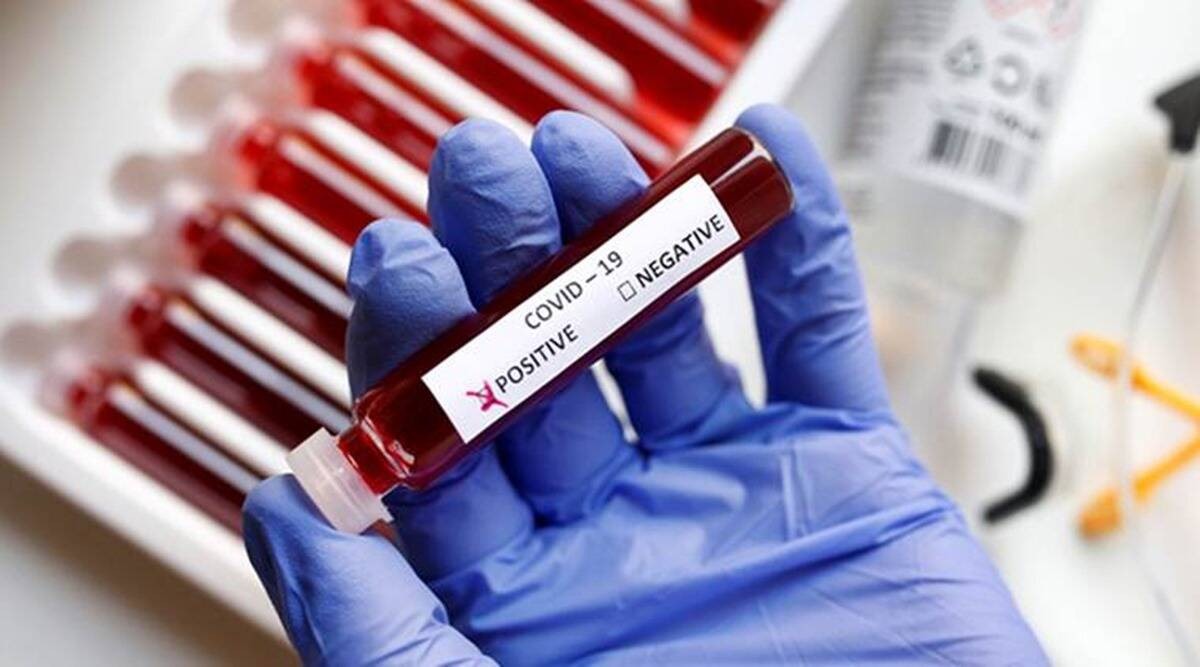UK study finds effective new COVID-19 rapid test in a box
 Vadodara mayor Dr Jigeesha Seth, in a statement to TV channels, admitted that the numbers were possibly underreported to keep panic at bay.
Vadodara mayor Dr Jigeesha Seth, in a statement to TV channels, admitted that the numbers were possibly underreported to keep panic at bay.A new small-boxed COVID-19 rapid test device, which gives results within 90 minutes, has been found to have a high level of accuracy and produced very few false negatives and no false positives in a UK study.
The Lab-in-Cartridge tests can be performed in cartridges smaller than a mobile phone and do not require a laboratory.
The study, led by Imperial College London scientists and published in ‘The Lancet Microbe’ this week, involved high-speed tests on 386 National Health Service (NHS) staff and patients and were found to have over 94 per cent sensitivity and 100 per cent specificity.
“These results suggest the test, which can be performed at a patient’s bedside without the need to handle any sample material, has comparable accuracy to standard laboratory testing”, said Professor Graham Cooke, lead author of the study from the Department of Infectious Disease at Imperial College London.
“Many tests involve a trade-off between speed and accuracy, but this test manages to achieve both. Developing an effective bedside test in under three months has been an incredible collaboration between teams of engineers, clinicians and virologists”, he said.
The test is currently being used successfully across eight London hospitals, and due to be rolled out at a national level in the UK as data continues to be gathered from the testing device for continual assessment.
Imperial College London said the UK government recently placed an order for 5.8 million of the testing kits.
To perform the test, a paediatric-sized nose swab from a patient is inserted into the device, which then looks for traces of genetic material belonging to the SARS-CoV-2 or novel coronavirus, which causes the infection.
A result is available within 90 minutes, compared to conventional COVID-19 testing which delivers a result in 24 hours.
According to the research team, the test is now being developed for assessing simultaneously Flu-A, Flu-B, and RSV as well as COVID-19.
The device, produced by Imperial’s London-based start-up DnaNudge, was used on 280 NHS staff members with suspected COVID-19, 15 patients in Accidents and Emergency (A&E) with suspected COVID-19, and 91 hospital in-patients, some of who were not displaying COVID-19 symptoms.
The percentage of those found to be positive for COVID-19 during the study at the peak of the pandemic was 18 per cent.
The results showed 67 samples tested positive on the CovidNudge test, compared with 71 positive results against a range of NHS standard laboratory machines, which represents the value of 94 per cent sensitivity.
“The DnaNudge test was developed as a lab-free, on-the-spot consumer service that can be delivered at scale, so we clearly believe it offers very significant potential in terms of mass population testing during the Covid-19 pandemic”, said Regius Professor Chris Toumazou, CEO and co-founder of DnaNudge and founder of the Institute of Biomedical Engineering at Imperial College London.
“The platform is well suited to testing in primary care and community settings with potential for use in non-healthcare settings such as care homes, schools, transport hubs, offices, and, to help bring the arts back, in theatres and venues. However, further studies of real-world effectiveness in non-clinical settings would be required prior to widespread deployment”, he said.
The research team, which included scientists and clinicians from Imperial and a number of NHS hospital trusts, assessed sensitivity and specificity.
Sensitivity is a measure of how well a test gives a positive result for people who have disease, and is an indication of how likely a test will produce false negative results.
Specificity, on the other hand, is a measure of a test’s ability to give a negative result for a people who don’t have the disease, and is an indication of the likelihood of false positive results.
“As an organisation we are focused on using research and innovation to continuously drive improvements to care.Getting accurate results back to clinicians and their patients as quickly as possible makes a huge difference to how we safely manage clinical pathways and we are very much looking forward to rolling this out more widely”, said Dr Bob Klaber, director of strategy, research and innovation at Imperial College Healthcare NHS Trust.
The device has been approved by the UK Medicines and Healthcare Regulatory Agency and has also obtained a CE mark, enabling its additional use in non-clinical locations. The team explain each device is wi-fi enabled, allowing the test result to be securely sent to a hospital’s record system.
Testing for the study took place between April 10 and May 12 at three NHS sites: St Mary’s Hospital, Imperial College Healthcare NHS Trust, London; Chelsea & Westminster Hospital NHS Foundation Trust, London and the John Radcliffe Hospital, Oxford University Hospitals NHS Foundation Trust, Oxford.
It was supported by the National Institute for Health Research, Imperial Biomedical Research Centre.
📣 The Indian Express is now on Telegram. Click here to join our channel (@indianexpress) and stay updated with the latest headlines
For all the latest World News, download Indian Express App.
© IE Online Media Services Pvt Ltd
tinyurlis.gdu.nuclck.ruulvis.netshrtco.de
